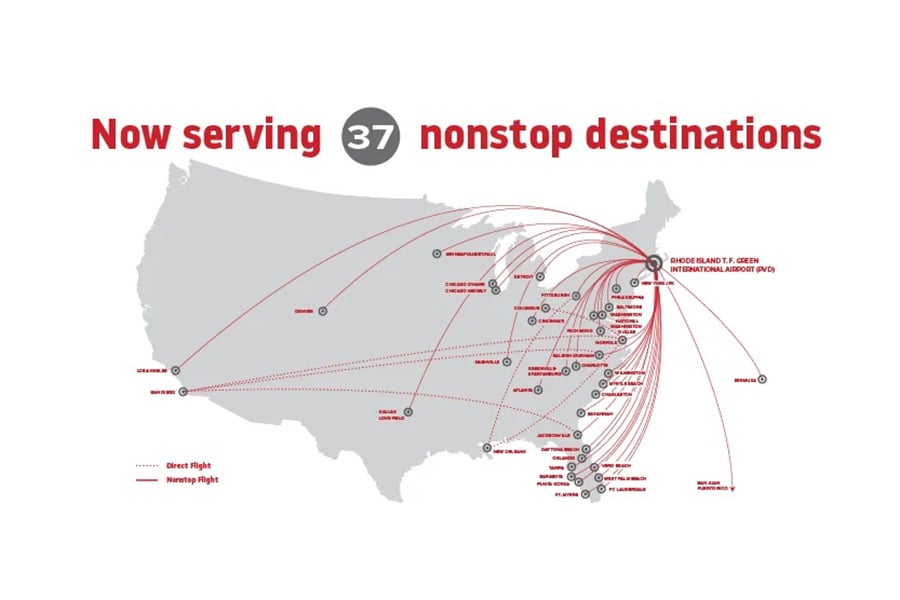Q&A: Brendan Doherty
A look back at the former Rhode Island State Police superintendent and detective’s career during the mob heydays.

Doherty (right) walking with mob associate Rudolph Sciarra while working undercover. Photograph courtesy of Brendan Doherty.
A former detective for the Rhode Island State Police, Brendan Doherty spent years investigating organized crime in Rhode Island. He joined the Rhode Island State Police ranks at age twenty-one, and later went on to become superintendent in 2007. Long after retiring from the police force, he published a book in 2019, It’s Just the Way It Was: Inside the War on the New England Mob and Other Stories. In this interview, he says he regretted declining participation in the Crimetown podcast, but included many stories from the time in his book.
How did you first get interested in investigating organized crime?
In college, I was involved in boxing, and I wanted to turn pro. Every gym that I would go to, there’d be wise guys there, and I fought some of them. There was a mutual respect. I might get in the ring with a guy who did prison time, and he knew who I was, and that I had an interest in the state police, and yet there were no grudges. You just did what you had to do in the ring.
What was it like to be a detective during the height of organized crime in Providence?
When I was a young detective in the organized crime unit [in the 1980s and ’90s], criminal conspirators were still around from the ’60s and ’70s that were shaking down bars and nightclubs. You had to understand why some of these factions and relationships existed, who took care of who, or who maybe testified in the trial for someone. So I became a historian on knowing who’s who of the major players. When I first started, Raymond L.S. Patriarca, the father, was a strong figure nationwide, and contrary to popular belief, his son, Raymond Jr., was a lot stronger than some people gave him credit for. He inherited a mob family and society was changing.
Why do you think these men were drawn to a life of organized crime?
I was a boxer in Central Falls, Rhode Island, and this kid came into the gym. I fought him as a kid. His name is Bobby Wallason. Wallason actually spells it out pretty well in Crimetown when he talked about what being a wise guy was back in the 1980s. You walked into a restaurant, people knew who you were. You got a seat right away. There were some benefits in society. Bobby Wallason, I’m not even sure whether he graduated from high school, but he’s a very bright guy. He’s a street smart guy. He wanted to be a wise guy growing up because he saw Nicky Bianco and Frank “Bobo” Marrapese; he saw the way they were treated with reverence when they’d walk into a restaurant or nightclub. They just didn’t have role models, or their role model was a criminal. When another kid might have seen a doctor in his neighborhood, or a guy who was coaching baseball, basketball, that kid might have aspired to be a doctor or coach, right? These guys were exposed to wise guys. But I’d also say some of these fellas didn’t want their kids to be wise guys.
What did they want for their own kids?
They wanted the best for their kids, and they wanted them to live a legitimate lifestyle. And not have to worry about prison, not have to worry about getting shot, not have to worry about being separated from their family. I got to know some of these guys very, very well. The conversations I had with them were just mind-boggling, because they were folks that could run their own businesses, they could have lived a legitimate lifestyle, but this is where they ended up. And then after that, when they got married and had kids, they didn’t want their family involved in that stuff.
When you were pursuing some of these characters, did you ever find that they were trying to put you or your family at risk?
The upper echelon of the mob back then wouldn’t allow that. I was a gentleman, but I made it very clear, if someone ever threatened me or my family, it’d be a different ball game. Most of the wise guys in my era were intrigued by my knowledge of them. I knew some of these guys that were married with their own kids or who their girlfriend was.
In your book, it seemed like a lot of these guys had a mutual respect for you.
It was a weird relationship, because they did respect me. If I was after someone, it was because they had committed a crime. I remember telling Louis Manocchio, I would put you in jail for 100 years if I could, but I’d never make something up. I’d never manufacture something on you. And he respected that. I used to tell my guys, if you stop a wise guy with his wife and kids, be respectful. Don’t embarrass somebody in front of their wife or kids. And they knew that about me. I did my job, but I had some interesting conversations because of that. Someone would break down, not break down emotionally, but break that wall of silence and then talk to me, or give me a piece of information that I could then go and pursue.
It was about building those relationships, right?
I got to know more about the wise guys than most average investigators, because I was able to have that casual conversation. They lived by the code of silence. And, you know, some of these guys were doing four- or five-year prison stints and they’d keep their mouths shut. But then, as times changed, and during my career, we now have a state RICO statute that was modeled after the federal RICO statute. And then you could actually convict someone. So that RICO statute became very, very powerful.
You did your research. You just did everything you could to know everything and stay one step ahead.
We had some charismatic players back then. A lot of those names from the past are forgotten, but Bobo Marrapese was straight out of a movie; and suave, debonair guys like Louis Manocchio and Raymond Patriarca Jr. He came up under his father’s tutelage and was old school, then had to manage what was going on around him as the world was changing. And then there were other associates like Gerard Ouimette and Jerry Tillinghast. There were some players from Rhode Island that were feared in places like Boston and New York. Jerry Tillinghast was a ruthless guy, but a funny, interesting guy. Jerry’s deceased, but if I brought him into a restaurant, and he had a jacket and tie on, you could introduce him as a business owner or an entrepreneur. He was a good looking guy, articulate, well spoken, charismatic, but the guy did thirty years in prison. He wrote a book, too — Choices: You Make ‘Em, You Own ‘Em — but he left a lot out.
Why do you think the mob doesn’t exist like it did back in the day?
Society doesn’t accept what was accepted years ago: nightclubs and bars being shaken down, restaurants being extorted. Pretty much none of that stuff exists around here. There might be a little bit of that still happening in New York, with other factions like the Russian mob, but the mob as we saw it here in New England, the way they were making money, has evaporated. They used to have floating crap games. There’s no floating crap games anymore. Those are all played an hour away at the casinos, the major high stakes card games that the wise guys used to take a cut of, those don’t exist anymore. The money isn’t there anymore, and people don’t look up to the mob like they did thirty years ago.

























